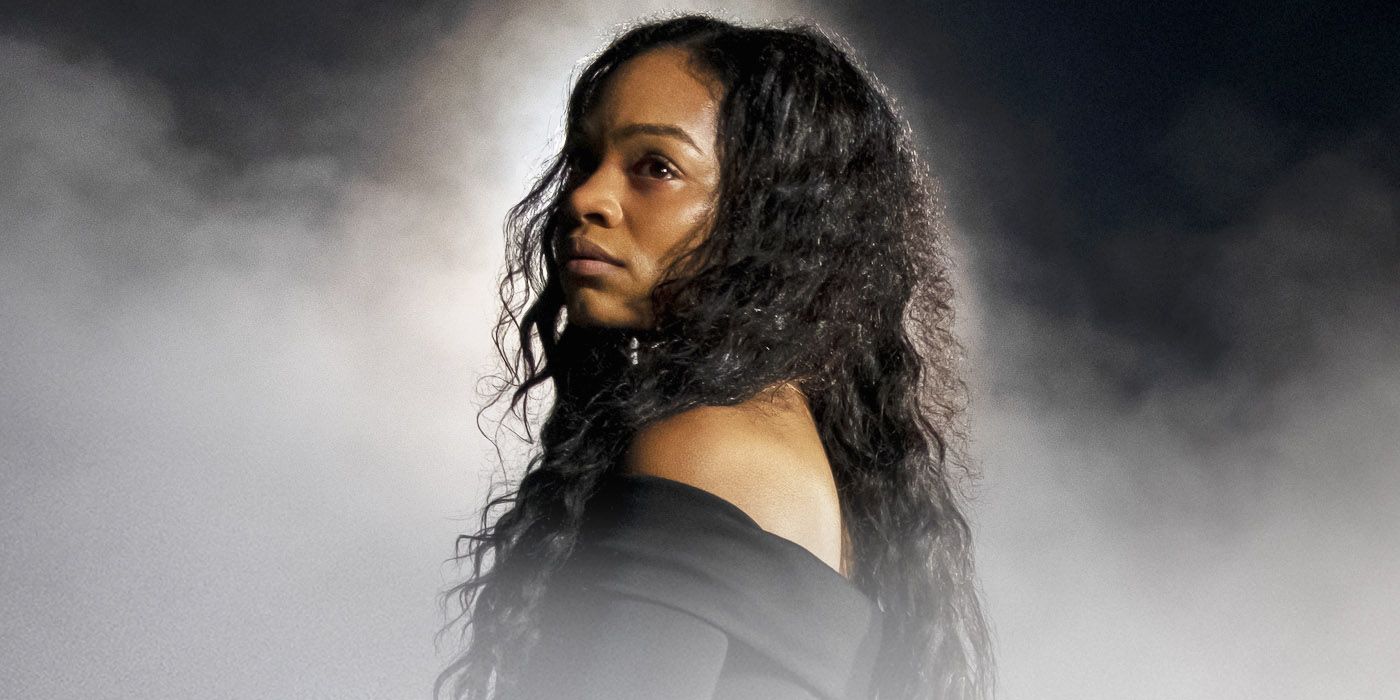
WARNING: Major spoilers for The Haunting of Bly Manor
Mike Flanagan's second season of his Haunting series on Netflix, The Haunting of Bly Manor, thrills audiences with a crop of new ghosts, this time without faces — but why? While certainly a creepier element of these restless spirits, the choice to give their faces a lack of defining characteristics was done for a specific purpose, which was revealed in the back half of the nine-episode season.
While Bly Manor isn't as scary as Flanagan's first outing, The Haunting of Hill House, it focuses instead on adapting elements from Henry James' novella, The Turn of the Screw. In doing so, Bly Manor delivers a Gothic romance/ghost story for audiences just in time for the Halloween 2020 season. Though this is the oft-cited reason for most of Bly Manor's negative reviews, the initial reception for the second series has been largely positive. Part of this is due to Flanagan's ability to weave together a cohesive narrative even in territory that is naturally mysterious, full of secrets, and deals with a slightly complicated timeline.
The Haunting of Bly Manor episode 8, "The Romance of Certain Old Clothes", which was directed by Axelle Carolyn, explores the history of Bly Manor, and gives not only a face (Kate Siegel) to Bly's most terrifying ghost—The Lady in the Lake—but further explains why she and the other spirits around Bly Manor don't have faces. This is a culmination of time catching up to them — by the time the ghosts' faces have faded, they've forgotten their memories. The longer they're caught up in Viola's cold, bitter whirlwind, the more of them that fades with the passage of time. This is also given a deeper, real-life connection—and adds a second layer of tragedy—through the inclusion of Owen's (Rahul Kohli) story. He is tasked with caring for his mother, who is suffering from Alzheimer's disease. Owen's sadness is connected to how he must watch his mother fade away in life, just as the ghosts of Bly Manor fade during their entrapment in purgatory.

Due to its status as a Gothic romance and love story, there's plenty of reason why this narrative is effective in regard to Bly Manor's greater story. The ghosts are not all innocent—though some certainly are—but all have essentially fallen victim to Viola's bitterness and resentment, which she has taken with her to a watery grave. As she walks a continual loop each night, at first hoping to be reunited with her daughter, but eventually reduced to wandering aimlessly, other random bystanders get caught in Viola's orbit. This was how Peter Quint (Oliver Jackson-Cohen) and others met their untimely demise. It's also why they're doomed to stay at Bly Manor — death stopped coming for them due to Viola's stubbornness.
Other ghosts died through different means yet they, just like all the other ghosts, will eventually begin to forget themselves as well. It's a curse they all share — as time passes and they travel through their various loops, the fading of their memories will manifest physically as their faces fading. It's not only a spooky bit of lore for Bly Manor, but also an existential fear many of the living have, which is driven home through Owen's personal experiences. He got to watch this happen to a living person. While his mother didn't lose her facial features like the ghosts, she eventually passed away. Owen's mother was never included directly, but his reaction to watching someone suffering from Alzheimer's disease is reminiscent of an ongoing fear that many healthy, living people have. As time passes, how much of who they once were will fade away with age?
Especially tragic in the case of the doll-faced ghost, who was only a child when he died, The Haunting of Bly Manor effectively uses its supernatural elements to comment on very real fears. The tragic nature of ghosts—spirits who are oft-depicted as trapped and restless in death, rather than at peace—further drives Flanagan's narrative in a hauntingly beautiful and perfectly splendid story.
from ScreenRant - Feed https://ift.tt/3nMxHVI

No comments: